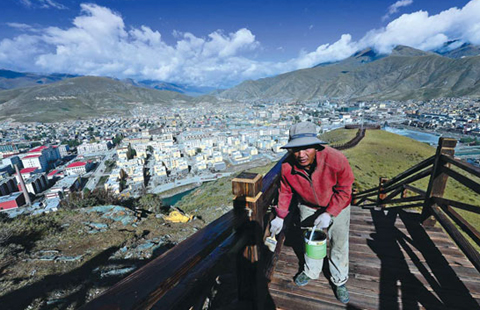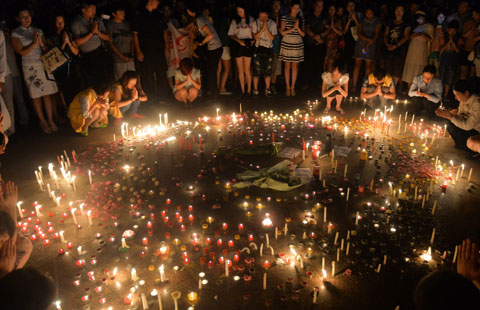IOC boss wants to use Games for a brighter future
Updated: 2014-08-19 10:21
By SUN XIAOCHEN(China Daily)
|
|||||||||||
The International Olympic Committee wants to use the current Youth Olympic Games as a test model for a more sustainable approach to future Games' bidding processes and operations, said IOC president Thomas Bach.
Given the scale and cost of major sporting events, hosting the Olympics has been an appealing yet challenging task for many developing countries, which has hampered the spread of the Olympic spirit.
The IOC has been considering reforms to the Games' bidding procedure and more flexibility in sports programs and in the scale of events. The Youth Olympic Games in Nanjing provide a valuable test site, said Bach.
"We are considering the question of sustainability very seriously on our agenda for 2020. You can already see some results and some changes we have made in this respect," Bach, who was elected IOC president in September 2013, told a media conference on Saturday.
Following his election, Bach, a gold medalist fencer at the 1976 Olympics in Montreal, said he wished to change the Olympic bidding process and make sustainability a priority given that the current bidding process asks "too much, too early".
The Youth Olympic program, which was initiated by the IOC during the tenure of former president Jacques Rogge, calls for a frugal and experimental approach to the Youth Games, and that baton has been passed to Bach.
So far, the 60-year-old German feels satisfied with the Nanjing organizing committee's work to present the Games in a sustainable way.
"The Chinese hosts have done an excellent job, the stage has been set for a very successful Youth Olympic Games," he said. "We really enjoy the seamless cooperation between the IOC and the organizing committee in the last four years and do so now. We can be very confi dent that we will have an excellent and joyful YOG in Nanjing."
Still, issues about the reluctance of potential big-event host cities has begun to surface - especially after Vietnam announced its withdrawal in April from holding the 2019 Asian Games, citing a lack of funds and domestic support.
The reported $51 billion price tag associated with the 2014 Sochi Winter Olympics caused even more concerns about the host's heavy investment on urban infrastructure and public services.
Bach stressed spending on infrastructure should not be counted on the Games' operational budget.
"What we have to realize is that in some countries there is still a misconception about the organization of the Olympic Games. It is very clear that the cost for the organization of the Games has been the same at the past few Games. It is about $2 billion for the Winter Games and $3 billion for the Summer Games," he said.
sunxiaochen@chinadaily.com.cn
Related Stories
Ex-IOC chief Rogge a wushu wizard? 2014-08-18 23:59
Chinese President Xi meets IOC chief Bach 2014-08-16 20:00
IOC president Thomas Bach to grace opening ceremony 2014-08-14 15:36
IOC Chief hails successful Sochi Games 2014-02-24 08:58
190m Chinese watched Sochi Olympics: IOC 2014-02-19 19:22
IOC: Rio needs to win over public 2014-02-08 07:25
Today's Top News
Chinese firms keep UK auto industry ticking
Rebels kill civilians as talks fail
Probes 'won't deter investors'
China, France collaborate on virus research lab
'Sky Road' finally connects Tibetan villages
Hospitals intervene to prevent suicides
No word if GM rice certificates extended
Drug bust for Jackie Chan's son
Hot Topics
Lunar probe , China growth forecasts, Emission rules get tougher, China seen through 'colored lens', International board,
Editor's Picks

|

|

|

|

|

|





